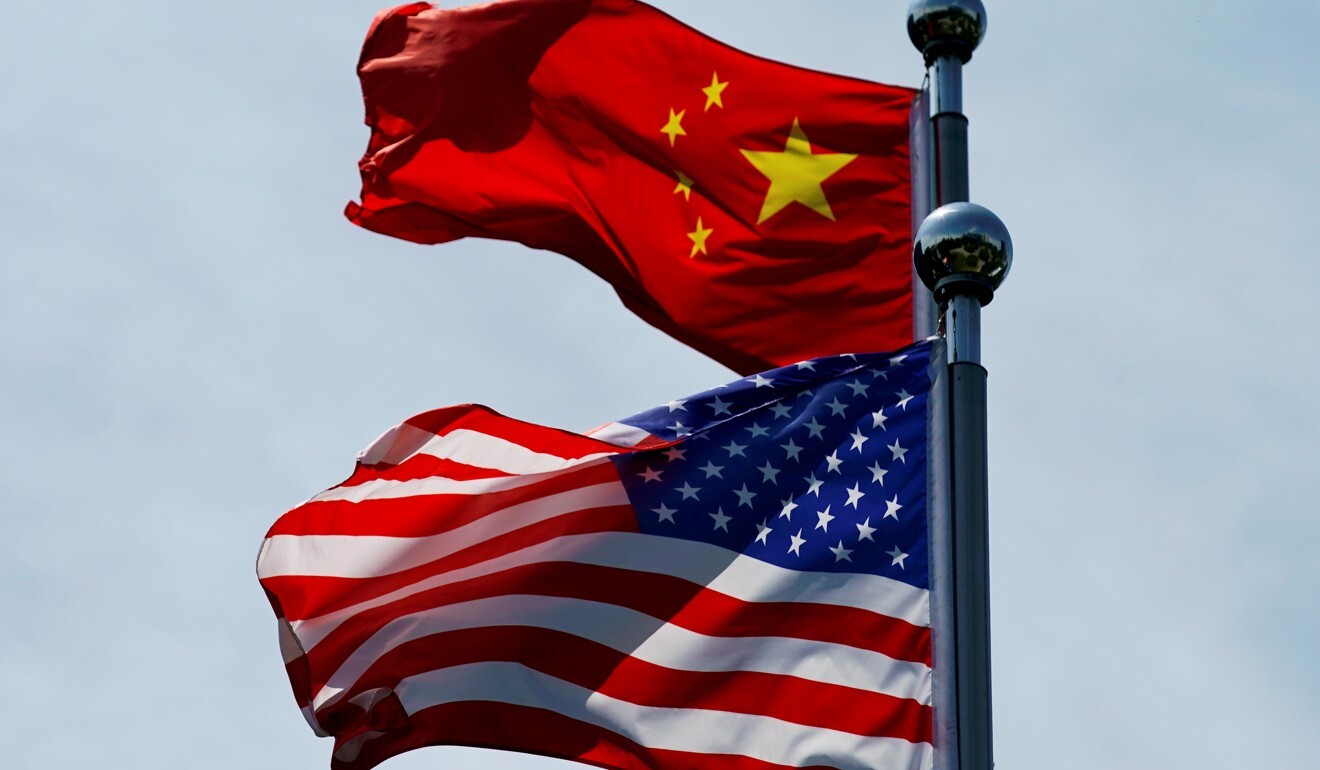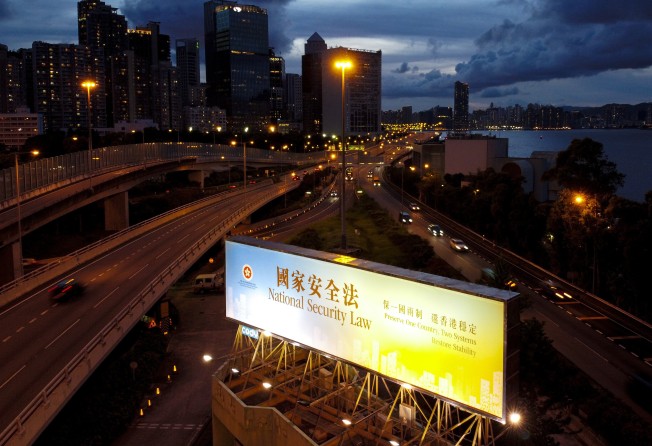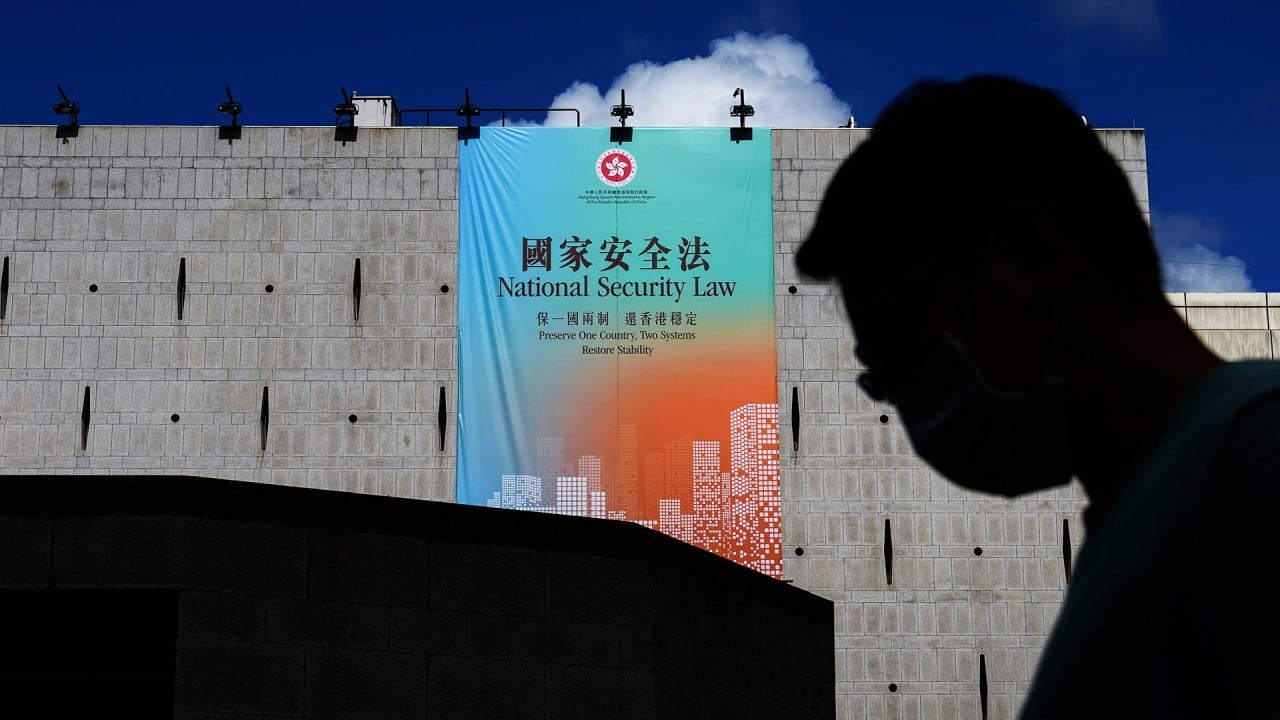
Foreign firms in Hong Kong face ‘huge insecurity’ over national security law
- Vague language, broad provisions and clause stating they could be punished for imposing sanctions has companies concerned
- Sources say legislation could be a wake-up call for businesses to re-evaluate their engagement with China

Foreign companies operating in Hong Kong are facing a dilemma as they digest the details of the city’s controversial new national security law: abide by the rules or support US sanctions against China for imposing the legislation.
Company insiders and diplomatic sources said it was too early to assess the impact of the law on business in the financial hub. But its vague language and broad provisions have stoked fears and may result in “huge insecurity” for foreign firms – particularly a clause stating any person or organisation that imposes sanctions could be punished.
They said the legislation could be a wake-up call for businesses to re-evaluate their engagement with China, and it may further complicate Beijing’s diplomatic relations with the West.
Beijing imposed the sweeping law on Hong Kong a week ago, after a year of anti-government protests in the city. It targets acts of secession, subversion, terrorism and collusion with foreign forces, with a maximum sentence of life in prison.

Some US companies have already raised concerns about the potential consequences of Article 29, according to a senior official with a trade association who requested anonymity.
The article states that it is an offence to steal, obtain with payment or unlawfully provide state secrets or national security intelligence to a foreign country, foreign entity or individual outside China. Under Section 4 of the article, any person or organisation “imposing sanctions, or blocking or engaging in other hostile activities” against China, including Hong Kong, is committing an offence.
“The reference to sanctions could be construed to encompass honouring sanctions imposed by an international institution or one’s home government,” said Lester Ross, partner-in-charge of the Beijing office of international law firm WilmerHale.
“And the term ‘hostile actions’ is entirely vague and open-ended, exposing subject individuals, companies and other entities to investigation and prosecution for a vast array of activities.”
Ross also said the term “state secrets” could be defined “very broadly”.
“If, for example, a financial analyst reports damaging information about a state-owned enterprise or a journalist reports a scandal, would they constitute state secrets because domestic financial analysts and journalists would be barred from reporting the same?” he said.
“Does [information] provided to foreign or overseas institutions, organisations or persons – as opposed to foreign or overseas governments which is separately referred to – constitute a crime?”

05:50
What you should know about China's new national security law for Hong Kong
The section would put foreign firms, especially from the United States, in a difficult position as they imposed sanctions on China at the request of the US government, according to business sources who declined to be identified.
A deepening rift between Beijing and Washington has seen the US since June moving to suspend Hong Kong’s special trade status and impose visa restrictions on Chinese Communist Party officials believed to be responsible for undermining the city’s autonomy. The US Congress also passed legislation last week to penalise banks for doing business with Chinese officials who implement the law.
One foreign business source said companies were worried about the Chinese response to US sanctions.
According to a diplomatic source, a key question now was how businesses would engage with people and organisations potentially affected by the sanctions – and whether it would force them to re-evaluate their strategies in China.

12:13
‘No winner’ amid rising US-China tensions, says Hong Kong’s commerce chief Edward Yau
There could be more sanctions or restrictions on China to come. White House Chief of Staff Mark Meadows told Fox News on Monday that US President Donald Trump was preparing to issue a series of executive orders on China, without elaborating.
“We’ve got a number of executive orders,” Meadows told Fox. “We’re looking at how we make sure that China is addressed, how we bring manufacturing back from overseas to make sure the American worker is supported. We’re also going to look at a number of issues as it relates to immigration, we’re going to look at a number of issues as it relates to prescription drug prices – and we’re going to get them done when Congress couldn’t get them done.”
Meadows added that manufacturing incentives were a priority for Trump in talks on the next round of coronavirus aid, which are set to ramp up in Congress later this month.

02:13
Beijing’s passage of national security law for Hong Kong draws international criticism
The national security law has sparked widespread criticism, including over Article 38 which covers offences committed by foreigners outside Hong Kong.
Donald Clarke, a law professor with George Washington University, said in a post on the China Collection blog that the legislation asserted extraterritorial jurisdiction “over every person on the planet”.
Another foreign business source said the law was unlikely to prompt a mass exodus of companies from Hong Kong, but firms would closely follow the details of the legislation “and look into any need to make contingency plans”.
“Companies do not want to be politicised but be pragmatic in making economic decisions,” the person said. “The introduction of politicisation into business only creates uncertainty.”